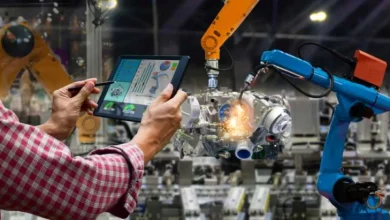Editing in the Digital Age: Harnessing Technology for Precision

In a world driven by technology and digital innovation, every facet of our lives has undergone a transformation. From the way we communicate to how we work, technology has left no stone unturned. And the world of publishing and editing is no exception to this digital revolution. Editing in the digital age has not only changed the way we correct and refine text but has also opened up new avenues for precision and efficiency.
The Evolution of Editing Services for Books
Gone are the days when editing a book was limited to red ink on a printed manuscript. Today, editing services for books have taken a leap into the digital realm. The tools and software available to editors are more sophisticated than ever. They not only correct grammatical errors but also offer suggestions for improving clarity, coherence, and even the tone of the text.
Utilizing Technology for Precision
Editing tools and software have made the process of refining a manuscript more precise. With features like spell check, grammar check, and style suggestions, editors can ensure that every word is in its rightful place. These tools help maintain a consistent tone and style throughout the text, which is crucial for ensuring a seamless reading experience.
Furthermore, the use of artificial intelligence (AI) in editing has become a game-changer. AI-driven editing tools can analyze the context of a sentence and make suggestions that go beyond traditional grammar rules. They can catch subtle nuances and provide recommendations that elevate the overall quality of the content.
The Difference Between Autobiography and Biography
When it comes to editing autobiographies and biographies, understanding the difference between the two is paramount. An autobiography is a personal account written by the subject themselves, while a biography is a narrative of a person’s life written by another. The editing process for these two genres differs significantly.
For autobiographies, the editing process involves preserving the author’s unique voice and perspective while ensuring that the narrative flows smoothly. In the case of biographies, the editor must maintain an objective tone and focus on accurate historical representation. Digital editing tools aid in achieving these distinct objectives with precision.
The Power of Digital Editing
Digital editing has not only increased precision but has also accelerated the editing process. With the ability to collaborate in real-time, authors and editors can work together seamlessly, regardless of their physical locations. This not only saves time but also reduces the back-and-forth typically associated with editing.
Moreover, the digital age has opened up opportunities for self-publishing. Authors can now take charge of their work and publish independently. However, this comes with the added responsibility of thorough self-editing. Fortunately, a wide range of digital tools and resources are available to assist self-published authors in producing high-quality content.
Incorporating Technology for Efficiency
In the past, editing could be a time-consuming and cumbersome task. With digital technology, the process has become more efficient. Editors can instantly review and apply changes, making the workflow smoother and faster. Authors can receive feedback quickly and make necessary revisions without the hassle of shipping physical manuscripts back and forth.
Conclusion
Editing in the digital age is a testament to the remarkable progress that technology has brought to the world of publishing. It has redefined the editing process, making it more precise, efficient, and accessible. The difference between autobiography and biography, once a challenge for editors, is now easier to navigate with the help of digital tools. As we move forward, the power of technology in editing will continue to shape the way we create, refine, and share our stories with the world.
Frequently Asked Questions:
-
What are some popular digital editing tools for authors?
- Digital editing tools like Grammarly, ProWritingAid, and Hemingway Editor are popular choices for authors looking to enhance their writing.
-
How has the digital age impacted the publishing industry as a whole?
- The digital age has transformed the publishing industry by making self-publishing more accessible, offering digital distribution channels, and streamlining the editing process.
-
Is self-editing with digital tools as effective as professional editing services for books?
- While digital editing tools are powerful, professional editing services for books provide a higher level of expertise and in-depth editing, making them a preferred choice for many authors.
-
What role does artificial intelligence play in the digital editing process?
- Artificial intelligence plays a significant role in digital editing by offering context-aware suggestions and enhancing the precision of the editing process.
-
Are there any specific challenges when editing autobiographies and biographies in the digital age?
- Yes, editing autobiographies and biographies in the digital age requires a keen understanding of the author’s voice for autobiographies and maintaining an objective tone for biographies, both of which can be aided by digital tools.
For more information you can also visit the home page for the website: https://kurtperez.de/



